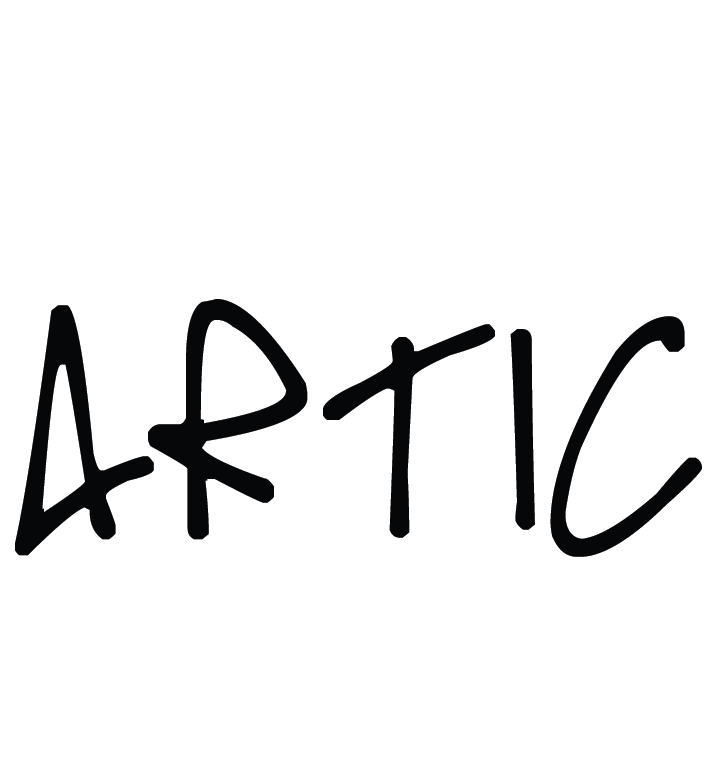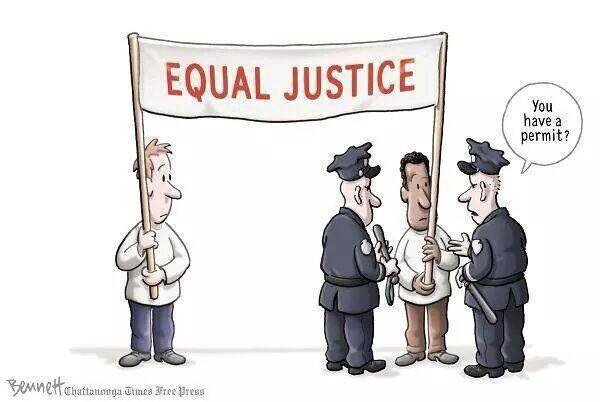Becoming Less Harmful
Cartoon Credit: Clay Bennett, Editorial Cartoons
I was raised a stereotypical homeschooled White Conservative Christian in Montana. I’ll spare you the details because you can fill in the blanks; any extremist view you can imagine is probably not far off. Except I was well-vaccinated because my mother was a nurse and we weren’t crazy.
It was a cozy philosophical bubble to be in. There’s a lot of delusional self-righteousness and revisionist history that makes you feel like being a White Christian American is the pinnacle of #blessed and all the haters are just jealous and under Satan’s spell. I don’t really recall when my bubble started to feel too small, when I started to notice that more people were outside the bubble than in it, despite the Jesus I knew wanting everyone to be safe and saved.
At any rate, I started college feeling hungry and bold. I was still deeply rooted in my Christianity, but I wanted to feel a challenge, I wanted to learn what the “other side” had to say to be better prepared for challenges to my views. So I signed myself up for a “Gay and Lesbian Lifestyles” class taught by an openly gay professor. Basically it was a queer history course and my first introduction to systemic oppression.
In my faith, I asked myself: what do I have to be afraid of? And I entered the space. I haven’t left. What follows are the steps that I personally took to learn about my Whiteness and how it impacts others. My hope is that they will help you take off your own blindfolds and start to see how embedded Whiteness is in our society and how it aims to harm, hinder, and destroy anything that doesn’t fit it’s narrow mold of acceptability.
While I no longer strongly identify as a Christian, this verse very much captures the goal of my goal for this work:
You received without paying; give without pay.
- Matthew 10:8
If you are a Christian, you know immediately what “received” is and it’s applicable here. I hope you will eventually learn is that we White folx also receive a tremendous amount of privilege in our society that we didn’t earn, and we have a duty to share.
But before we can share anything, we have to first understand the environment. As a trained therapist and researcher, one of the first things I learned is that the power of presence as an intervention all on it’s own. An intervention that can often have reverberating effects that the observer cannot anticipate. Just showing up brings power and energy to a situation that wasn’t there before. We can spin this off into sociology, anthropology, physics, economics, basically every discipline in the sciences and arts has something to say about what happens when a different presence enters the environment.
As such, before we advance into the realm of doing, we have to gain significant skills in the realm of being. As white folks, our mere presence in a situation can bring fear, danger, anxiety, and anger for others (you probably don’t believe this yet, that’s ok). Unless we are willing to soak in and observe the power of just being, we have no business entering the space to offer our doing. Bear with me and follow the steps; you will learn why.
Build your internal resources, because you are part of the problem - this work requires that your feelings be hurt. You will learn and hear things that you vehemently disagree with, that make your roll your eyes and cluck your tongue, you’ll feel like disengaging and giving up because this “stuff is stupid” or “taking it too far” and “what about my feelings/pain/experience?”. You need to be ready to cope with these feelings and manage them effectively so you can keep going. All growth is rooted in discomfort. Embrace it. Developing the ability to hear and see things that challenge your sense of self and make you wince while still staying present and listening will make you stronger in every area of your life. And our BIPOC family does it every day because it’s not optional for them. At least be grateful it’s optional for you. Here’s a link to some steps to manage distress if you need a starting point.
If you decide you can’t do the work then skip to the end.
Do a literature review - dig deeply into the works of BIPOC leaders and activists, especially their perspectives of American history. Read the words of the people with the lived experience. Challenge yourself to avoid reading the works of white authors (even the least problematic ones). If reading isn’t your jam, there are countless videos, movies, and podcasts to turn to. If you find yourself having difficulty believing what they say, then you must keep listening (return to your skills). If you’re really struggling with a topic, be bold and Google your (probably) racist question. You can’t hurt Google’s feelings or make Google feel unsafe.
Double down - When you’re done you’ll still have questions. Refine your research to focus on what brings you the most fire or the most discomfort. Be prepared that there may not be an answer to your question. There may be multiple perspectives and often the best answer is “it depends”. This is an invitation to build your mental flexibility, return to your skills.
Join a White learning space or pay for an equity training - basically, find other white folks with the same heart as you. Begin saying words and bravely asking questions that you couldn’t answer on your own or that you wrestle with. Be prepared to be informed about your biases and ways that racism and oppression slipped passed you. Know that this is ok because you will not harm other white folks by asking them these questions. This is where you really show up and say things based on impulse and emotion. Here, you can enter the social justice ring and start sparring. You will get knocked down and you may get knocked out. You can always return to the first three steps and then come back. You will feel when your skills are increasing because you’ll feel stronger and more flexible. You’ll feel more attuned to the presentations of oppression in our society, and you’ll be less afraid of saying something wrong because you’ll be able to take it. And you’ll be able to appropriately apologize when needed.
Congratulations! You’ve made it this far! You just might be ready to join the cause.
Your first objective is to challenge other white people whenever you get the chance. This is what you’ve been working toward.
Get your own house in order - address racism and oppression in your own spaces first. If you work with any BIPOC folks there’s a REAL good chance that they get treated inappropriately or unfairly in your environment. Be aware of this and watch for it. Don’t be afraid to be that person who sends an email to the boss saying “Hey, I just want you to know that I didn’t think that was cool”. (You’re never speaking on behalf of someone, just voicing your own discomfort in the experience).
Do what you’re told - Find a way to get involved in other spaces. Consider volunteering at local social justice organizations (Google is still your friend). No matter where you’ve landed, understand that you are not in charge. Be humble and ask what is needed; have a skill set to offer. If you don’t have a skill set don’t be afraid to clean offices, hand out fliers, or get coffee. If this really means something to you, you’ll do what’s asked of you.
Ask what to say and when to say it - at this point you should be working with a BIPOC person in some capacity. When bad things happen, and they will keep happening, have a relationship with that person where you can ask “what do you need from me?” or “I’m feeling the impulse to say/do _____, would that be helpful?”. Be prepared to be told “nothing” and “no”, respectively. Be patient and accept the answers; there will be a time when you will be called to say or do something risky on behalf of your BIPOC family. Be ready for that time.
What if I don’t have any BIPOC friends!?
That’s ok! There’s probably several reasons for that, most of them rooted in things you’ve already learned about. I hope at this juncture you’ve had some wool pulled off your eyes and you see the immense value and worth of BIPOC cultures and spaces. This does not mean you need to try and enter them. I assure you that no BIPOC folks want to be your Affirmative Action Friend(™). You are first and foremost a Colonizer and you must never forget that. Enter into spaces where you are explicitly invited and perhaps your openness and awareness will attract people that you need in your life and who need you. Authenticity tends to do that.
I’m here at the end because I’ve decided I’m not ready to do the work. What do I do?
So you’re not ready: ok. Then I ask you to be silent. If you are not ready to do the work to join the conversation, then you must not open your mouth. If you’re a helper, you owe it to your BIPOC family to not harm them due to your lack of awareness. Please continue to challenge yourself to watch and listen. We’ll still be out here when you’re done.
In Solidarity,
Shea Lowery

